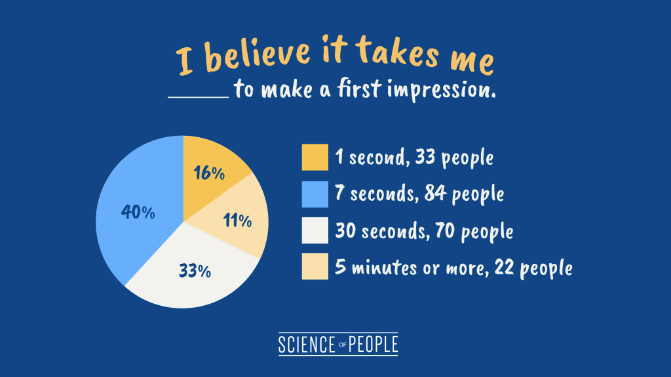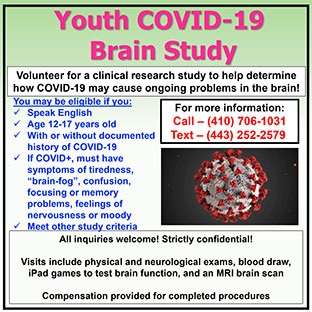Ace your next job interview – 12 things to avoid saying

First impressions matter; they matter even more in a job interview.
One of the best ways to prepare for a job interview is to prepare some answers in advance that showcase your skills and experience while demonstrating why you’re a good fit for the company.
You should also think about what not to say to avoid leaving a bad impression.
This article will reveal 12 things not to say in an interview and provide you with six tips for interview success.
Why everything you say in an interview is important
95% of people believe first impressions are very important, while 89 percent say they make up their mind about someone within 30 seconds or less of meeting them.

This means that what you say to a prospective employer matters from the moment you walk into the interview.
To make your first impression count, you must show that your personality will be a good fit for the company culture while presenting your relevant qualifications, skillset, experience, and soft skills, such as good communication.
That’s a lot to squeeze into a short amount of time, so it’s best to prepare for the interview in advance to avoid getting stuck or giving an answer that could jeopardize your chances of getting hired.
Read on for 12 things not to say if you want to make a good impression in your interview.
12 things not to say in an interview
1. “Sorry I’m late”
Interviewing for a job is a lot like going on a first date — and showing up late gives a terrible first impression.
In fact, your prospective employer is likely to think you don’t care enough about the position to arrive on time. As a result, you probably won’t get the job if you show up late.
Try your best to avoid being late by leaving with plenty of time, checking the traffic, and knowing the route in advance.
If something out of your control makes you late, it’s best to be honest with your recruiters.
It may still be difficult to make a good first impression if you don’t show up on time, but lying will only make it worse.
2. “I don’t know”
Sometimes in a job interview, the dreaded moment occurs when you can’t think of an answer to a question.
But before you panic, remember you’re not the first candidate who’s ever been stumped in an interview.
Keep calm, and buy yourself some time by asking the interviewer for clarification or repeating the question to make sure you understood.
If you still can’t think of an answer, tell them you’ll give it some thought or look it up after the interview. Then, give them your answer in your follow-up correspondence.
3. Any kind of profanity
Some people are okay with swearing, but unless you know for sure, it’s best to err on the side of caution and keep your language polite and professional when interviewing for a new job.
4. Details of your personal life
Unless it’s somehow relevant to the role — like your experience taking care of your little sister when interviewing for a role as a nanny — there’s no need to talk about your personal life.
Keep your anecdotes professional, and don’t tell stories of drunken escapades or the time your no-good ex left you for an acrobat.
5. Lies
You should never lie in a job interview as it can ruin your credibility and make your potential employers lose their trust in you if you get caught.
6. Cliches
Avoid using cliches in your interview. For example, when they ask about your weaknesses, don’t tell them you’re “a workaholic” or “a perfectionist.”
Instead, be honest about your strengths and show that you’re working to overcome your weaknesses.
7. Bad-mouthing your former employer
You may have had your reasons for leaving your last job, but it’s best to keep it professional when referring to your previous employer or former co-workers.
Talking badly about others reflects badly on you and is a red flag for a hiring manager.
8. Asking what they do
If you don’t know what they do, it shows you haven’t done your research. This gives a bad first impression, as it makes you seem disinterested in the company.
9. The wrong questions
When they ask if you have any questions, don’t ask about vacation, benefits, or promotions.
Instead, ask thoughtful questions that show you’ve read about the company and are familiar with the job description.
A good rule of thumb is to ask three types of question:
- Their thoughts on a relevant industry topic
- One specific to the company’s operations
- One specific to the role
10. Your lack of experience
Everyone starts somewhere. If you’re a student or recent graduate or are simply switching careers, it’s normal to lack experience.
But if you focus on that, you’re essentially telling your recruiter why you’re not a good hire.
Instead, focus on your strengths and draw on experiences that might be relevant to the role you’re applying for.
Take a positive approach and focus on how excited you are to learn new skills and gain experience.
11. “It’s on my resume”
If they ask you about a specific experience, it’s because they want you to tell them more about it.
They already know it’s on your resume because they’ve read it — so be prepared to go into more detail.
12. Jargon and filler words
Using jargon and abstract words makes your interviewer’s brain switch off. Using visual language, on the other hand, helps them picture the scene.
Be descriptive and explain using real-life examples, rather than speaking in jargon and acronyms.

5 job interview tips to make a good first impression
Now you know what not to say, here are five tips to prepare for a successful interview.
1. Be prepared
The best way to ensure success in an interview is to prepare answers to some common interview questions, such as:
- Why are you interested in the role?
- What relevant experience do you have?
- What are your strengths and weaknesses?
- Tell me about a time when you had a disagreement with a work colleague and how you resolved it.
You might also want to consider giving your social media profiles the once-over to make sure there’s nothing inappropriate that a hiring manager could find.
2. Be polite
Remember, interviewers are people, too. Greet them politely when you arrive, tell them you’re pleased to meet them, and thank them for their interest in your candidacy at the end of the interview.
3. Show, don’t tell
Use real-life examples to show your potential employer what you’re capable of. Focus on your role and not just the achievements of your team.
4. Be enthusiastic
Tell them why you would love to work for them. Show them you’re keen to grow and develop within their company.
5. Follow up
Always send an email or note within 24 hours thanking the interviewer for their time — it’ll help you stand out from the crowd.

Reiterate your interest and why you’re a good fit for the role.
Don’t follow up more than once, though. In most cases, if you don’t hear back after a couple of weeks, you can assume you weren’t successful.
Make a positive impression at your interview
A little previous preparation before your interview can go a long way.
Researching the company and role and preparing some examples of your past achievements can help create a good first impression on your prospective employer.
Being polite, enthusiastic, and thanking them for their time can help you stand out from the crowd.
Now that you know how to ace your interview, why not head over to our job search section to find your next opportunity?






